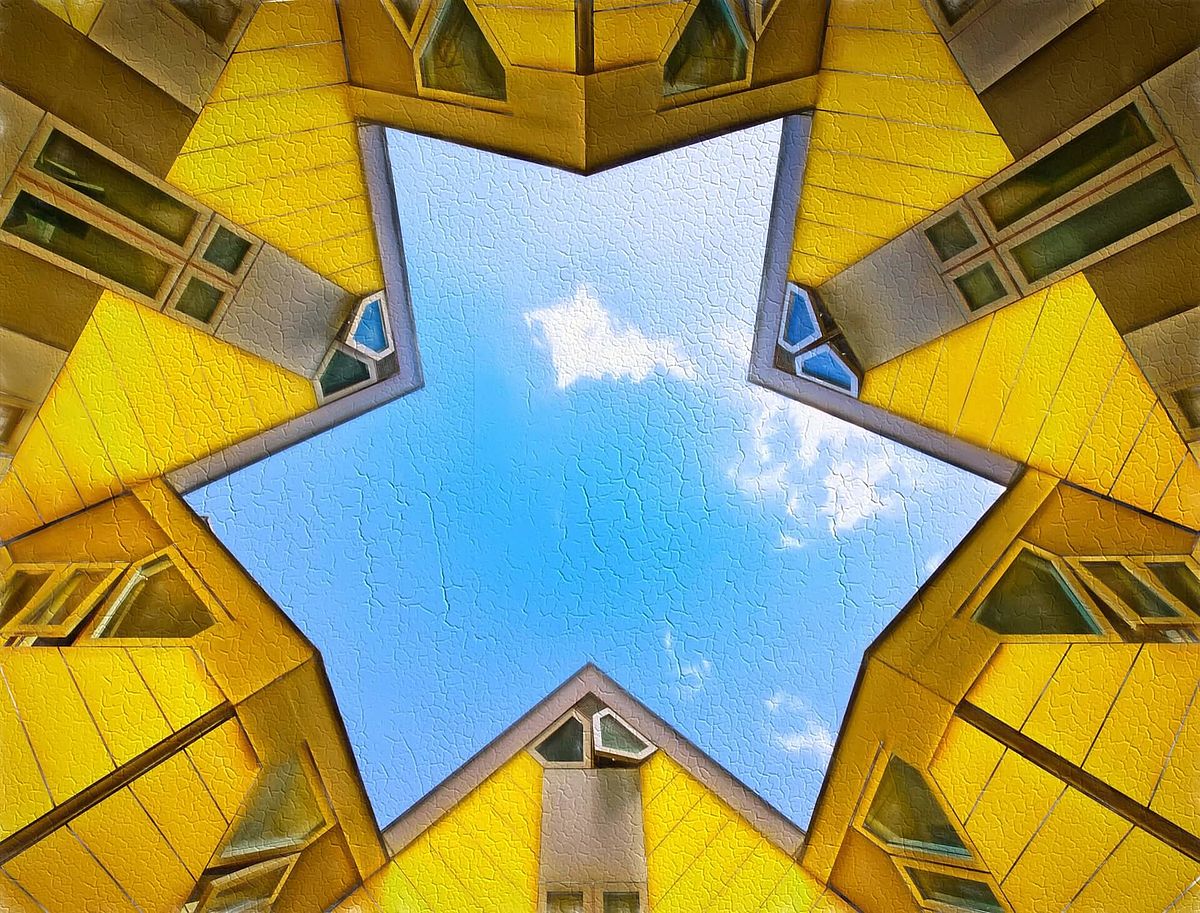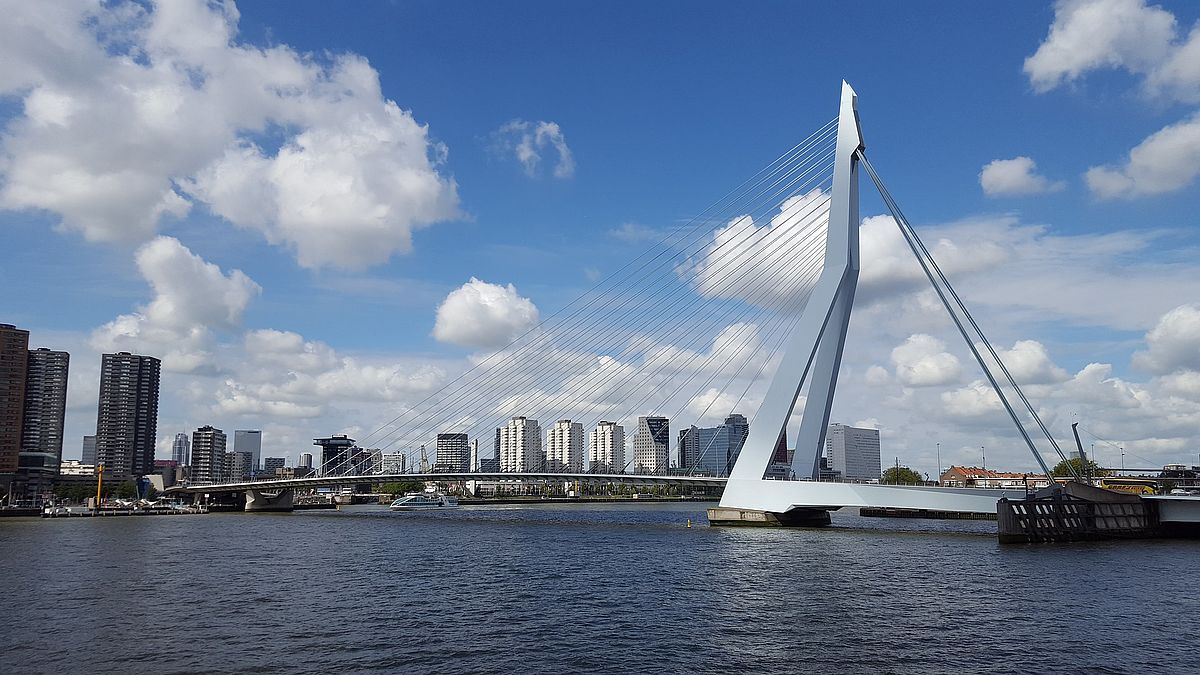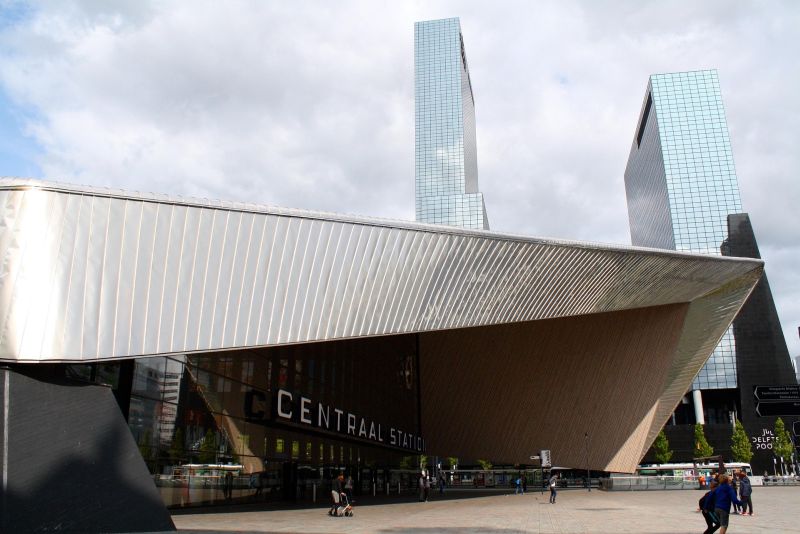Rotterdam, Netherlands
Rotterdam, located in the southwest of the Netherlands and home to Europe’s largest port, is a city known for its bold, practical mindset: the “Make it Happen” mentality. This spirit is deeply embedded in its approach to sustainability and circularity. As resources become scarcer and environmental challenges grow, Rotterdam is embracing the circular economy not just as a necessity, but as an opportunity to innovate, collaborate, and lead.
Circular construction: Building smarter and greener
Rotterdam is making major progress in circular construction. In Valckensteyn, 82 homes are being built primarily from wood, storing over 1.7 million kilograms of CO₂. The Schiehaven Noord area is being developed as a Paris Proof neighbourhood, with 500–700 homes designed according to circular and climate-resilient principles. To support reuse, the city opened a circular depot in Reyeroord, where used concrete materials from public spaces are cleaned, sorted, and stored for future use.
The tidal park in Keilehaven reused 10,000 tons of sand and paving materials from the Museumpark, saving €130,000 and demonstrating how circularity can also be cost-effective. Rotterdam also launched De HER, Europe’s most circular environmental park, built with over 80% reused materials—including 13th-century wood and components from the Erasmus Bridge. In Hoogvliet, the Slaghaam Bridge was constructed using geopolymer concrete, a cement-free mix made from 50% recycled materials, resulting in 48% less CO₂ emissions and earning the 2024 Dutch Concrete Award. Even seasonal traditions are being reimagined: circular wooden Christmas trees are now placed in neighborhoods, reused annually, and serve as community gathering points.


Empowering Residents and Entrepreneurs
Rotterdam actively supports circular initiatives at both the neighbourhood and business levels, fostering a city-wide movement. Through the circular neighbourhood approach, residents in 13 districts are engaged in community-based local projects such as De Moeite Waard and De Sjet in Reyeroord, which promote reuse, repair, and community connection. In the Agniesebuurt, a give-away shop was launched where locals can exchange items, reducing waste and strengthening social ties.
The Textile Race mobilised schoolchildren to collect nearly 4,500 kg of textiles and repair clothing, raising awareness about sustainable fashion. The city also hosted the exhibition ‘Less, Better, Longer & Again’ in the Central Library, showcasing practical examples of circular living and traveling across neighborhoods. Rotterdam’s Microfactory initiative teaches fashion students to design and produce circular garments, leading to a major order for production and a unique collaboration with local upcycling ateliers.
Entrepreneurs are also supported through innovation funding, helping companies like Other Spheres (seaweed glitter), Outlander Materials (biobased packaging), and BioSphere Solar (repairable solar panels) scale up. The Circular Helpdesk assists around 35 businesses annually with regulatory and operational advice, and is now expanding regionally.
Connecting city and business
To make circular living more accessible, Rotterdam is building bridges between residents and businesses. The Circular Route Planner maps over 300 locations across the city where people can buy second-hand goods, repair items, or reduce food waste. At large public events, the city is leading by example: the World Port Days introduced a reusable hard cup system, now adopted by 10 other festivals.
In South Rotterdam, the RataPlan thrift store opened as part of the Workstation initiative, offering employment opportunities and affordable goods. The city also played a key role in the Dutch Sustainable Fashion Week, hosting 34 events to spotlight local sustainable fashion. During No-Foodwaste-Week, the Shareaty pop-up restaurant served soup made from surplus vegetables sourced from the port and supermarkets, highlighting food waste and food poverty.
Through partnerships with organisations like BlueCity010, Rotterdam strengthens its circular ecosystem, connecting entrepreneurs, investors, and knowledge institutions to accelerate scalable, industrial circular solutions.


